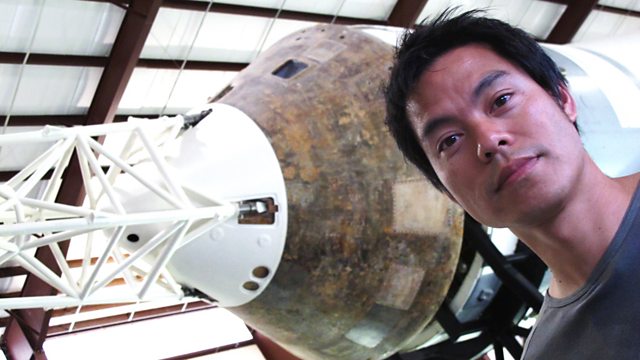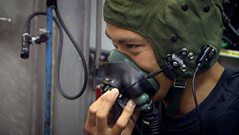
Up
Dr Kevin Fong learns how we can survive in hostile conditions. In the second programme he goes goes climbing in the Alps to find out how the body responds to altitude.
We think of ourselves as a global species, but in fact we can only comfortably survive on less than a quarter of the earth's surface.
In To Boldly Go, doctor of extreme medicine Kevin Fong sets out to discover how we are able to conquer the other 75 per cent. In an eye-popping series of experiments, Dr Fong uses his own body to demonstrate how unsuited our biology is to much of the planet - and how we have had to develop the technology to let us survive there.
In the second programme of the series, Dr Fong finds out how the body responds to altitude. The short answer to that question is: badly - as Dr Fong finds out, climbing one of the tallest mountains in the Alps, and subjecting himself to a sudden depressurisation to 25,000 feet. But although we struggle to deal with altitude, the defining story of 20th-century technology was our quest to leave the surface of the earth behind and travel up through the atmosphere and into space.
The natural home of our species is at sea level. Even today more than three-quarters of the world's population live at altitudes below 500m. And there is a very good reason for that - the higher we go, the less oxygen there is in the air and the harder we find it to survive.
Last on
Clip
-
![]()
Decompression Chamber
Duration: 03:14
Credits
| Role | Contributor |
|---|---|
| Presenter | Dr Kevin Fong |
| Producer | Michael Lachmann |
| Director | Michael Lachmann |
| Executive Producer | Gary Hunter |

